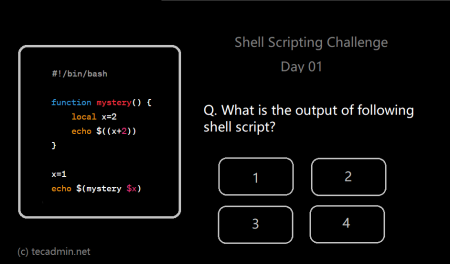Bash, a widely-used Unix shell, is not natively equipped to handle floating-point math. However, with the help of various tools and utilities, Bash can perform floating-point calculations effectively. In this article, we will explore different techniques to perform floating-point math calculations in Bash, along with practical examples.
Table of Contents
- Introduction to Floating Point Math in Bash
- Basic Floating Point Operations with bc
- Advanced Floating Point Calculations using awk
- Handling Complex Math with expr
- Rounding Floating Point Numbers
- Tips for Floating Point Math in Bash
- Conclusion
1. Introduction to Floating Point Math in Bash
Floating-point numbers are crucial for scientific and engineering calculations. Unfortunately, Bash’s arithmetic operations don’t natively support floating-point numbers. To overcome this limitation, we can utilize tools such as bc, awk, and expr.
2. Basic Floating Point Operations with bc
`bc`, short for Basic Calculator, is a command-line calculator that supports arbitrary precision. It is an excellent tool for performing floating-point arithmetic in Bash. The basic syntax for bc is:
1 | result=$(echo "scale=N; expression" | bc) |
Where N is the desired number of decimal places, and expression is the mathematical expression to evaluate.
Example: Addition and Subtraction
1 2 3 4 5 6 7 8 9 10 | num1=3.14 num2=1.73 # Addition result=$(echo "scale=2; $num1 + $num2" | bc) echo "Addition: $result" # Subtraction result=$(echo "scale=2; $num1 - $num2" | bc) echo "Subtraction: $result" |
This command will output:
Output:Addition: 4.87 Subtraction: 1.41
3. Advanced Floating Point Calculations using awk
`awk` is a text-processing tool that can be used for more advanced floating-point arithmetic in Bash. It can handle multiple operations and variables, making it a powerful choice for complex calculations.
Example: Multiplication and Division
1 2 3 4 5 6 7 8 9 10 | num1=5.25 num2=2.5 # Multiplication result=$(awk "BEGIN { printf(\"%.2f\", $num1 * $num2) }") echo "Multiplication: $result" # Division result=$(awk "BEGIN { printf(\"%.2f\", $num1 / $num2) }") echo "Division: $result" |
This command will output:
Output:Multiplication: 13.12 Division: 2.10
4. Handling Complex Math with expr
`expr` is another command-line utility that can be used to perform complex math operations in Bash. Although it doesn’t directly support floating-point arithmetic, you can use it in combination with bc for powerful results.
Example: Exponentiation
1 2 3 4 5 | base=2.5 exponent=3 result=$(echo "scale=2; $base ^ $exponent" | bc) echo "Exponentiation: $result" |
This command will output:
Output:Exponentiation: 15.62
5. Rounding Floating Point Numbers
Rounding floating-point numbers is a common requirement in many calculations. You can use `printf` in combination with `bc` or `awk` to round numbers to a specific number of decimal places.
Example: Rounding with printf
1 2 3 4 5 6 7 8 9 | number=3.14159 # Rounding to 2 decimal places rounded_number=$(printf "%.2f" $number) echo "Rounded to 2 decimal places: $rounded_number" # Rounding to 3 decimal places rounded_number=$(printf "%.3f" $number) echo "Rounded to 3 decimal places: $rounded_number" |
This command will output:
Output:Rounded to 2 decimal places: 3.14 Rounded to 3 decimal places: 3.142
6. Tips for Floating Point Math in Bash
- Use bc, awk, or a combination of expr and bc for floating-point calculations, as Bash does not natively support them.
- Enclose your expressions in double quotes when using bc or awk to avoid potential issues with special characters and whitespace.
- Use the scale option in bc to control the number of decimal places in the result.
- Utilize printf for consistent formatting and rounding of floating-point numbers in your scripts.
- Be aware of the precision limitations of floating-point numbers and the potential for rounding errors.
Conclusion
Performing floating-point math calculations in Bash requires an understanding of its limitations and the use of available tools like bc, awk, and expr. By leveraging these tools effectively and following the tips mentioned above, you can perform complex calculations with confidence in your Bash scripts. With practical examples and hands-on experience, you’ll become proficient in handling floating-point math in Bash.
